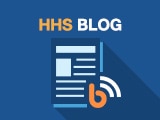202-690-6343
[email protected]
Biden Administration to Invest $150 Million to Expand Access to COVID-19 Treatments in Underserved Communities
As part of the Biden Administration's ongoing efforts to promote health equity in response to the COVID-19 pandemic, the U.S. Department of Health and Human Services (HHS) is investing $150 million to increase access to COVID-19 monoclonal antibody therapeutic treatments for patients in vulnerable communities across the country.
This new effort will speed assistance to hard-hit communities to increase administration of monoclonal antibody treatments to prevent hospitalizations and deaths. Assistance may include additional staffing, infusion center capacity in traditional and non-traditional health care settings, and equipment to administer the intravenous infusion treatments. The effort will also increase awareness among health care providers and patients about the treatment options available, including where and how to access them.
"This is another example of how the Biden Administration is committed to an equitable COVID-19 response," said Dr. Marcella Nunez-Smith, Chair of the COVID-19 Health Equity Task Force. "We're working to keep people from getting COVID-19, and the vaccines that are currently being administered across the country are a key to doing just that. But for those individuals who get COVID-19, we want to make sure that they, too, have the benefit of the latest in scientific discovery to give them hope and help toward a safe and speedy recovery."
This effort will focus on communities that have high levels of COVID-19 and are determined to be particularly vulnerable based on the Centers for Disease Control and Prevention (CDC) social vulnerability index. Social vulnerability refers to the potential negative effects on communities caused by external stresses on human health including disease outbreaks. The index uses 15 U.S. census variables to help local officials identify vulnerable communities.
CDC has found that COVID-19 is affecting underserved communities and ethnic minorities disproportionately largely due to poverty and uneven access to health care in those communities. Also considered are communities in which monoclonal antibody treatments currently are available and equitable access can be increased quickly for underserved populations.
Three monoclonal antibody treatments are available under emergency use authorization from the U.S. Food and Drug Administration (FDA). The monoclonal antibody therapeutics neutralize the virus that causes COVID-19 to prevent progression of disease. Based on the available evidence of safety and efficacy, the National Institutes of Health (NIH) recently updated its guidelines to recommend use of the treatments for those non-hospitalized COVID-19 patients who are at high risk of progressing to severe disease.
As each monoclonal antibody therapeutic received FDA authorization, HHS purchased and began allocating treatment courses, and now health care facilities can order the treatment courses directly from the distributor. Each therapeutic is administered as a single infusion. Since November 2020, more than 900,000 treatment courses have been distributed to more than 5,000 locations across United States.
To learn more about the monoclonal antibody therapeutics available, visit https://combatcovid.hhs.gov/.
Like HHS on Facebook, follow HHS on Twitter @HHSgov, and sign up for HHS Email Updates.
Last revised:



